Looking for a few all-natural, effective methods to keep aphids out of your garden – and from wreaking havoc on your vegetable plants this year?
If there is one pest that brings fear to many a gardener, it’s aphids! One thing is for sure, the tiny, quick-multiplying insects can be hard to stop once they gain a foothold. And once they do, they can quickly bring harm to a wide array of vegetable plants – from tomatoes and peppers, to cucumbers, zucchini and more.
Aphids are soft-bodied insects that feed on the nutrient-rich sap plants produce. While they prefer tender new growth, they will devour any type of stems, foliage, blooms, and even fruit. Especially when they begin to congregate in large numbers.
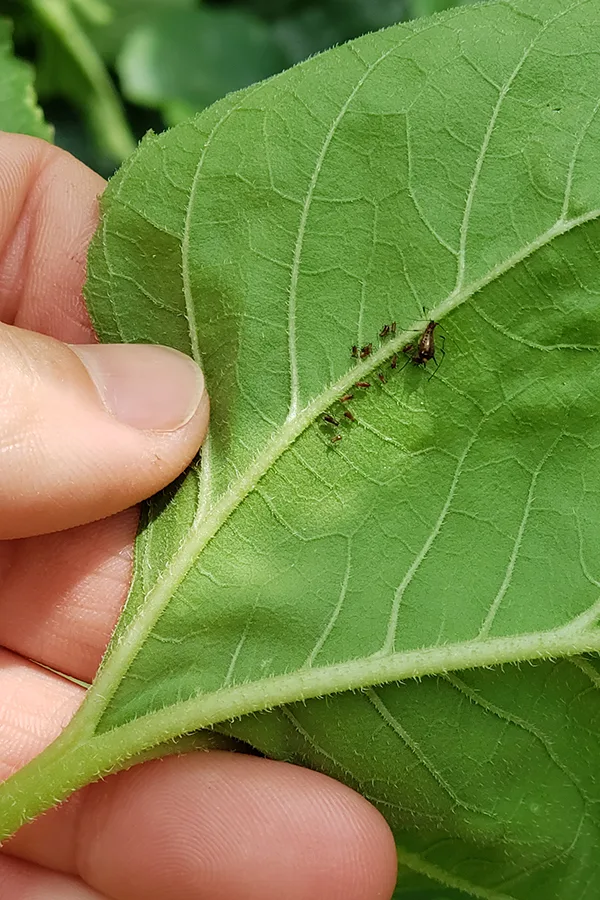
The tiny insects aren’t particular about the type of plants they infect as well. From perennials to annuals and of course, vegetable plants – it’s all fair game as long as they can bite through the plant’s skin and consume the sap.
A Little About Aphids – Keep Aphids Out Of Your Garden
Aphids, which are sometimes called greenfly or blackfly, are hard to find with the naked eye. Young aphids (referred to as nymphs), can almost be invisible. Even adults are tiny as well, rarely growing to more than a quarter inch in size.
Different species range in color from almost see-through to cream, brown, orange, black, gray, light green, yellow, and pink. Some females are even winged at later stages in life, but most do not fly. And can they ever multiply fast!
Aphid populations can explode rapidly. How fast? They are so productive they can often triple the size of their colony in as little as just three days! For that very reason, they are one of the most destructive pests of all for vegetable gardens.
Unfortunately, once a single plant in a garden setting is infected, the aphids can spread quickly to other plants too. Especially since they love to feed on such a wide variety of plants.
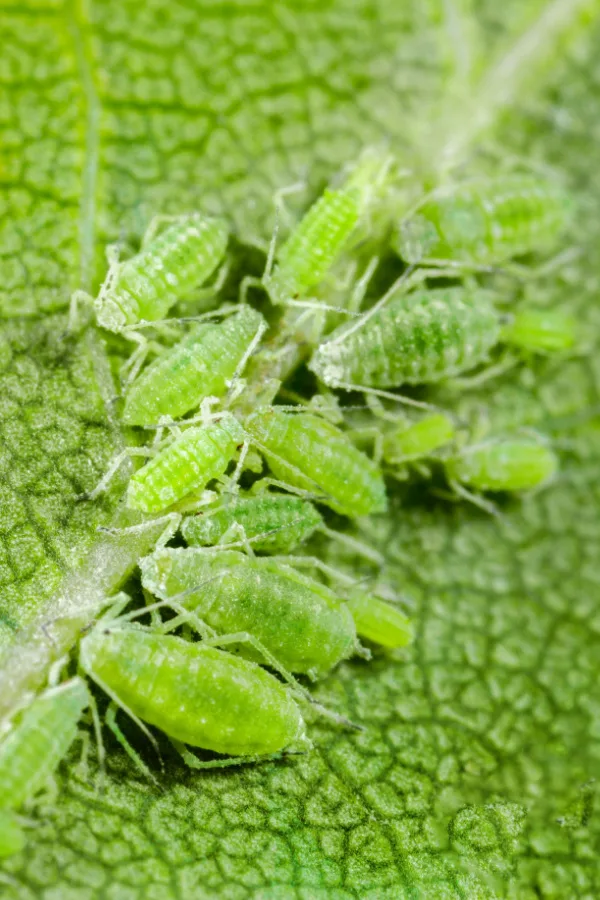
Not only do aphids damage and weaken plants by sucking the sap, they also carry a wide variety of viruses and diseases. Some injure plants significantly and lower yields, while others can overwhelm and kill vegetable plants altogether.
Avoiding Pesticides
Although there are commercial insecticides that can control aphids, they can be quite unsafe for using in a vegetable garden where the harvest will be consumed. In addition, many insecticides also kill off beneficial insects and pollinators too, which can lead to other pest and productivity issues in the garden as well.
But there is good news! There are actually quite a few natural, safe and effective ways to stop aphids. And not only are they wonderful for controlling aphid populations – they also happen to be far less expensive and far less scary to use on plants!
How To Keep Aphids Out Of Your Garden Space – Naturally
Early Detection
First and foremost, the most important key to keeping aphids under control is early detection. That is why taking a walk through your garden every few days is critical. The faster you spot them, the easier it will be to gain control of the population.
As mentioned earlier, aphids are very small and hard to see with the naked eye. Add to that fact that they typically live and lay their eggs on the underside of a plant’s foliage, and you have one sneaky pest that is easy to miss.
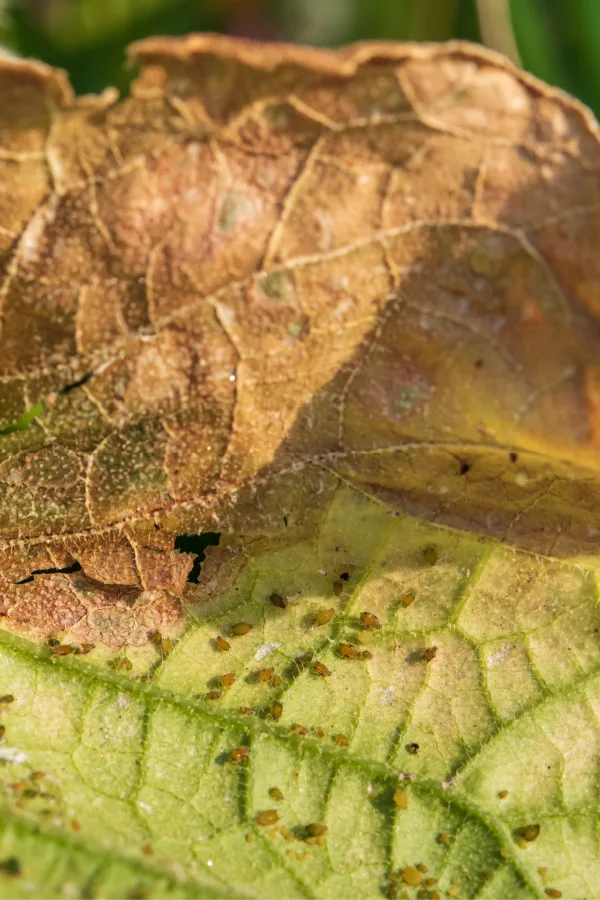
As you walk through your plants, turn the undersides of leaves over. Look for any signs of yellowing or curling of the leaves. Check new growth and blooms closely to look for signs of early damage since this is where aphids like to go first.
Also, look for an increase in ant activity on your plants. Ants are attracted to the honeydew that the aphids produce after they consume the plant’s sap. If you start to see more and more ants moving around your plants, you might have an aphid infestation starting.
Water Spray – How To Keep Aphids Out Of Your Garden, Naturally
If you do see the beginnings of an aphid infestation, one of the best ways to get rid of them is with plain old water.
Since aphids and their eggs are small and fragile, it doesn’t take much to knock them both down. Once they are down on the ground, there is no nearby food source for them to eat. Because of that, they quickly die in the soil, unable to eat or reproduce.
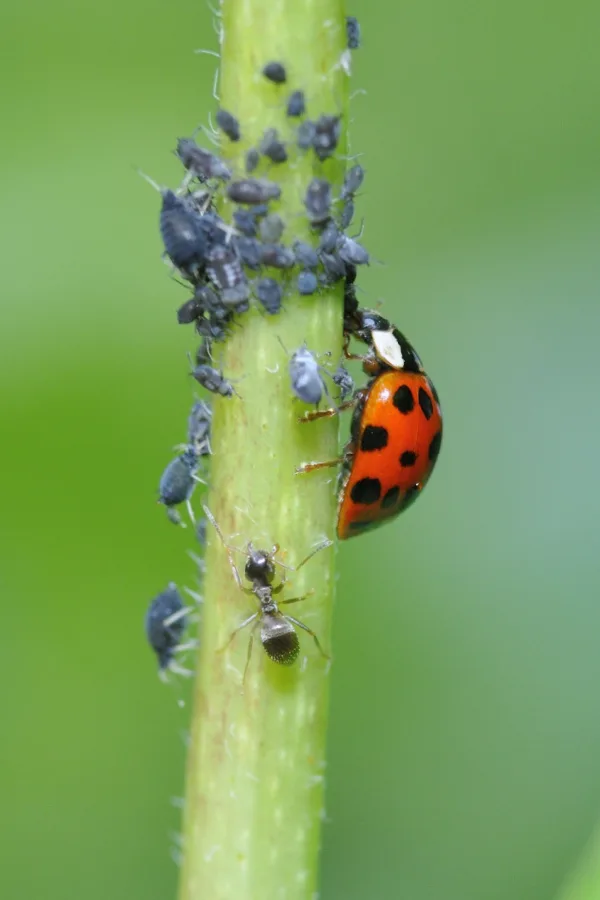
To spray the aphids, use a garden hose or small sprayer with a more direct water stream. Be sure to spray both the bottom of the leaves as well as the top. Also, work from the top of the plant down to the ground to make sure you aren’t just knocking them off onto lower leaves.
As you spray, be sure to not hit the leaves or any new blooms with too much force from the water. A good direct flow of water will dislodge the aphids from the foliage, but too strong of a spray can injure leaves and blooms.
Neem Oil – How To Keep Aphids Out Of Your Garden, Naturally
Neem oil is a great way to safely control an aphid infestation in short order. The oil is created by pressing oil from the seeds of neem trees. It is 100% organic; all natural; and, most importantly, safe for pollinators like butterflies and bees once it dries. (Product Link: Bonide Captain Jack’s Neem Oil)
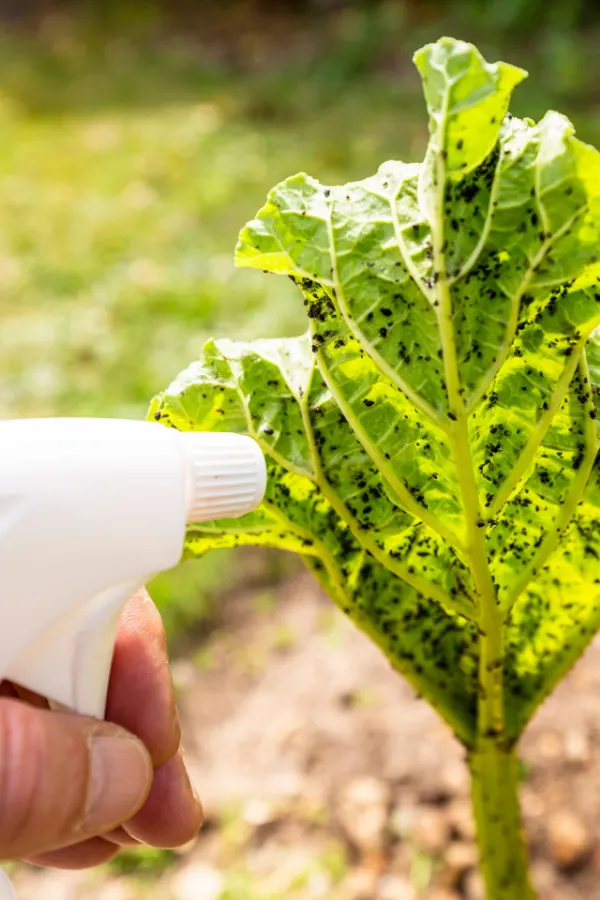
Neem oil is good for not only helping to keep aphids under control, but many other garden pests as well. It also works well for controlling cucumber beetles, leaf miners, cabbage worms, ants and more. See: How To Control Ticks With Neem Oil
To use neem oil, mix two teaspoons of pure neem oil with one gallon of water and a few drops of dawn dish soap. Use a handheld sprayer to apply the mixture to the tops and undersides of the plant’s foliage. Repeat the process every couple of days and after any rains.
It is best to spray early in the morning or late in the evening with neem oil. This is when bees, butterflies and other pollinators are not active and allows the oil to dry. If wet, it can still harm these beneficial insects.
Natural Predators – How To Keep Aphids Out Of Your Garden, Naturally
Another great way to keep aphids from destroying your garden plants is to use their natural predators.
Some of the natural enemies of aphids include ladybugs, parasitic wasps, hoverfly larvae, lacewing larvae, and crab spiders. If you want to allow mother nature to control your aphid population, then take measures to attract these natural predators to your property.
One of the best ways of doing this is by planting a variety of desirable flowers and herbs around your garden vegetables. Sunflowers, dill, cosmos, daisies, oregano, coriander, and yarrow are all favorites of many of these predators. You can either plant them directly in your garden or place them in potted plants to move around for protection.
Believe it or not, you can even purchase predator insects such as ladybugs or lacewing to add to your garden space. As long as there is an adequate food source, the bugs are likely to stick around and provide you with great pest control. (Affiliate Product Link: Live Ladybugs)
Companion Planting – Planting To Keep Aphids Out Of Your Garden
Companion planting is a great way to stop an invasion of aphids before they ever start! Although there are many plants that aphids enjoy taking up residence on, there are also some that they detest – and by planting these in the garden, you can keep aphids from ever visiting.
In terms of deterring aphids, one of the best plants to grow nearby is marigolds. These plants are easy to grow from seed and produce multiple, fiery-colored blooms.
Marigolds put off a strong, offensive scent that is perfect for repelling aphids, tomato hornworms, whiteflies, mosquitoes, and more. Just having a few marigold plants growing around susceptible plants can be enough to deter aphids from staying and laying eggs.
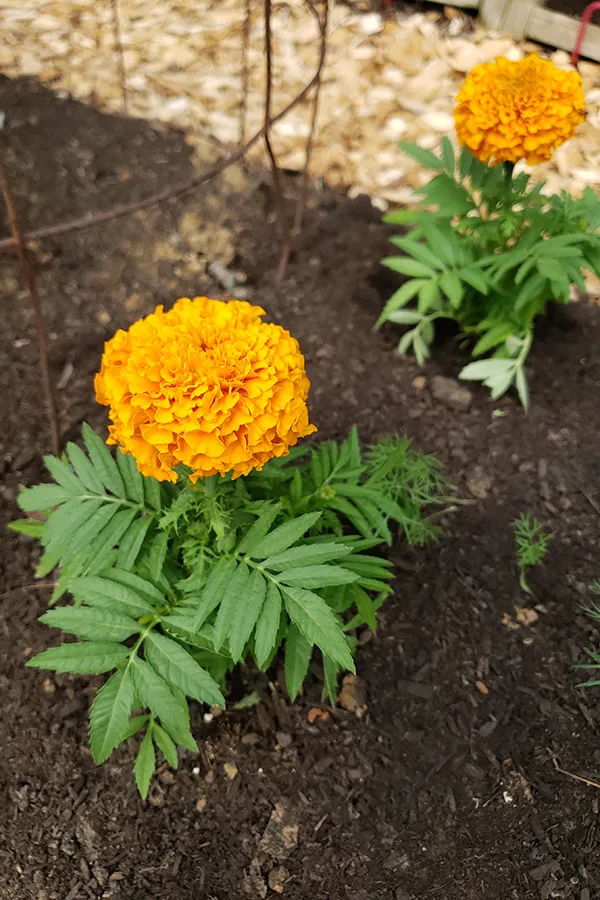
Another great companion flower to add around garden plants is nasturtiums. As opposed to marigolds that repel aphids, these plants produce a chemical maker that actually attracts aphids.
Now wait, aren’t we trying to repel aphids, not attract them? Well, actually nasturtiums are used as a “trap crop.” They draw small aphid infestations away from your vegetable plants and other more desirable plants.
As long as you stay on top of removing the aphids with some of the methods used in this article, the nasturtiums can help to keep your other plants safe and untouched!
Between early detection and using some of these other natural methods, you will be able to keep your aphid infestation in check and prevent them from damaging your garden crops this year!
Follow Our Facebook Page For Even More Great Tips! Simple Garden Life Facebook Page
Simple Garden Life is a website dedicated to keeping gardening fun, simple and enjoyable! We publish two new articles each week along with a new garden podcast episode every two weeks. This article may contain affiliate links.
